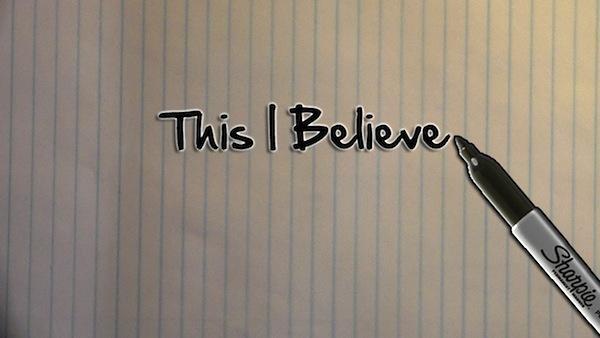
I believe higher education is a public good. It’s essential to make this statement at the beginning of courses because this value is at the core of who I am and will help answer many of the questions you will ask me about who I am, what I do, and why I do it. It is also the thread that winds through all my past experiences and explains why I have committed to working in higher education, specifically.
As a scholar and practitioner in higher education, our field is consistently wrestling with the question of whether higher education is “public” or “private good.” Those who claim higher education is a public good often talk about equity: they make the case that, like K-12 education, it should be available for everybody. Those that argue it is a “private good” focus on that higher education needs resources, and since students must pay for it, it is “more equitable” for the costs to be borne by those who benefit most from it ergo it is a “private good.” More articles and intricate arguments are available for one to read on this subject, which has also been at the center of many a scholar’s life work. But, as an openly gay, first-generation, Russian-speaking Chicano (Mexican American) from the barrio of San Antonio, Texas, who attended and worked at two-top-ten predominately white institution, I have no choice but to believe in the power of higher education.
As a teenager in the 1990s, I grew up in an area of town where I was destined for violence – violence either acted upon me or by me. That was the destiny of my father and many of the men in my family. My high school Russian teacher convinced me, and more importantly, my family, to allow me to leave San Antonio and come to Michigan to pursue my undergraduate degree. At the University of Michigan, where I spent six years as an undergrad, I had a supportive environment to explore my social identity and stretch my understanding of my beliefs, knowledge, and values. Where else, but at a university could a Pentecostal-raised, Mexican cowboy in boots and a Texas-sized belt buckle go from discussing humanism in a philosophy class to studying Russian and East European folklore to the impact of the 1993 Family and Medical Leave Act on the current relations between unions and automotive companies. There were many experiences I had in undergrad that also helped shape who I am now. Like many students today, I had my fair share of bouts with depression and suicide, needing to work two jobs (on top of my work-study job) to make ends meet, and yes, I dropped out several times. While my undergraduate experience was a crucial and defining period in my adulthood, it wasn’t until I started working in higher education. In particular, with graduate students, I began to understand the power and influence higher education can have on students.
I have had my fair share of stints in student affairs and academic affairs, which my CV will highlight. However, what you wouldn’t see written between the lines, is the number of students like me I helped shepherd through the process. There was the undocumented undergraduate student from Guatemala who was brought to the U.S. as a child to escape violence and whose dream was that they go to college and become an engineer; there was the first African American woman to graduate from computer science, who would come to my programs on navigating the Ph.D. focused on making sure she knew how to negotiate a job offer, and then were the countless other students who I worked with and tried to mentor and help them manage their struggles and identities. As a staff member, I felt empowered and obligated to help students, just as the faculty and staff had helped me through my process. Yet, it wasn’t until I got to graduate school that I could finally put the finger on why I did it and understood where my commitment originated. Like many of my colleagues in graduate school, I read about the numerous authors and scholars we have in our field, especially around student success. In many of these models, educating and supporting students is at the core of institutions’ missions. I am in a field where the majority says, and I agree that higher education can improve many individuals’ situations in life—especially those from low socio-economic status and under-represented groups. My own experience proves this. However, higher education can go further than that and help individuals grow and improve society through the work that faculty, students, and, yes, even staff produce.